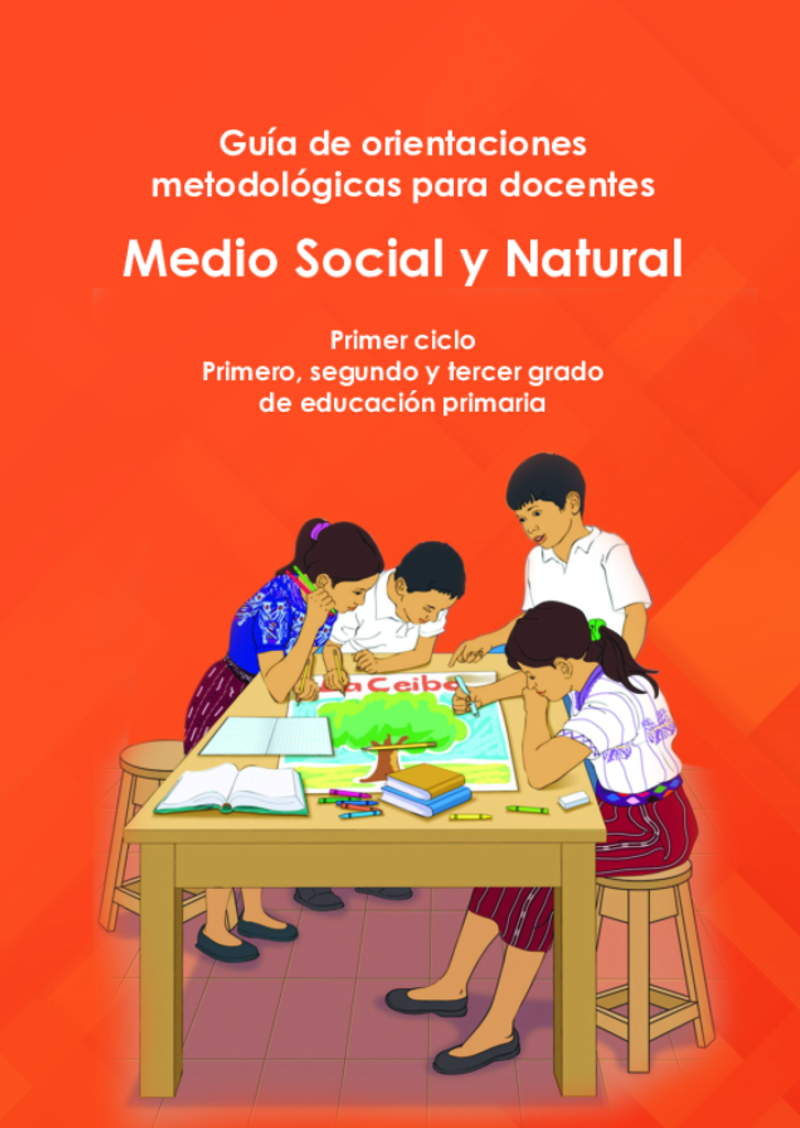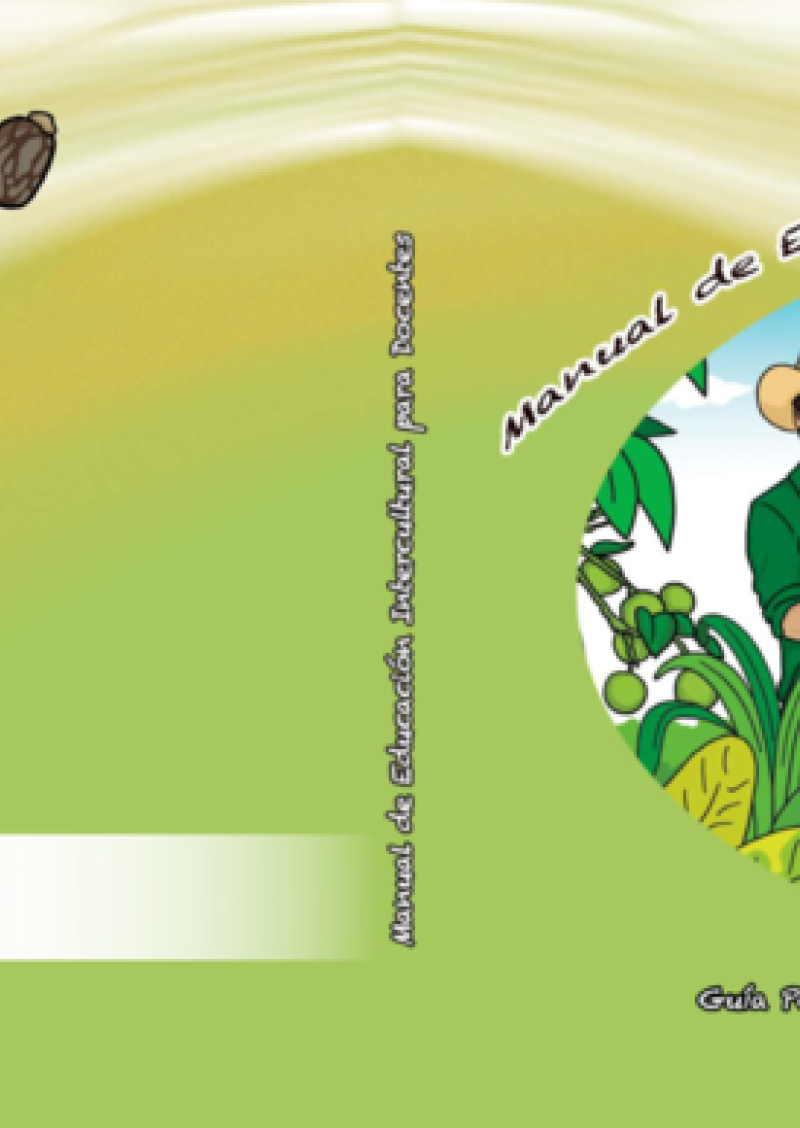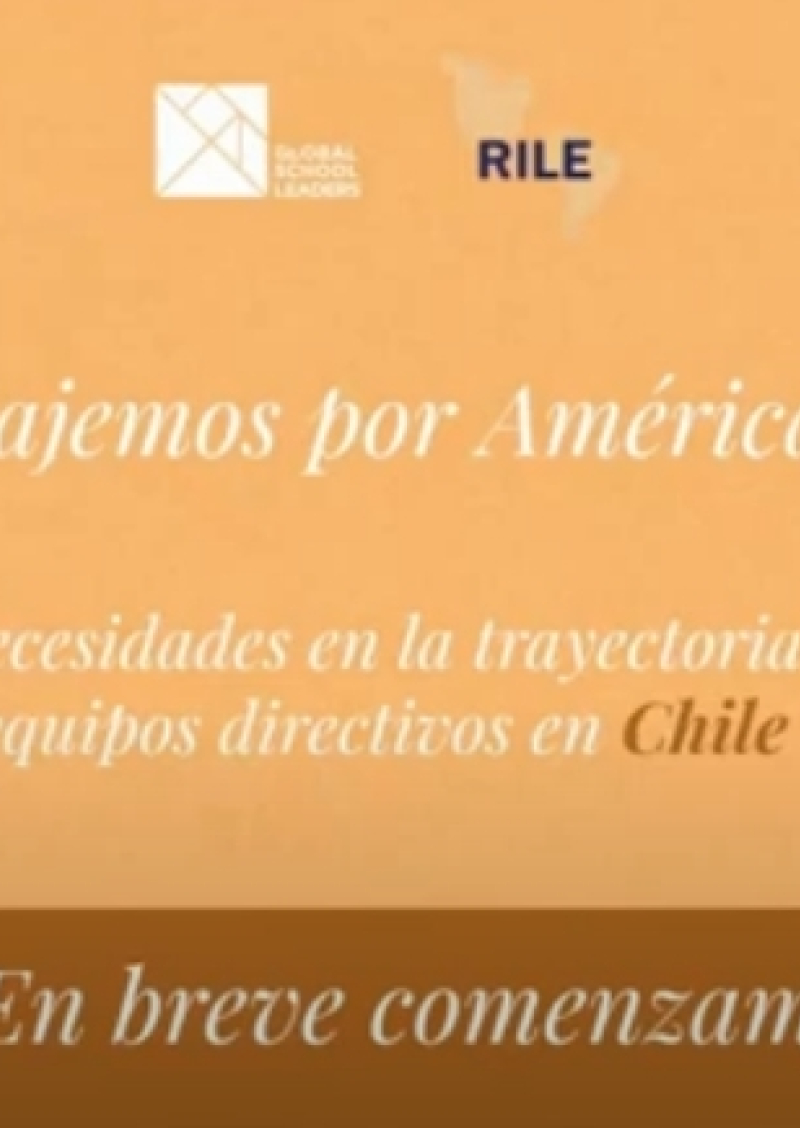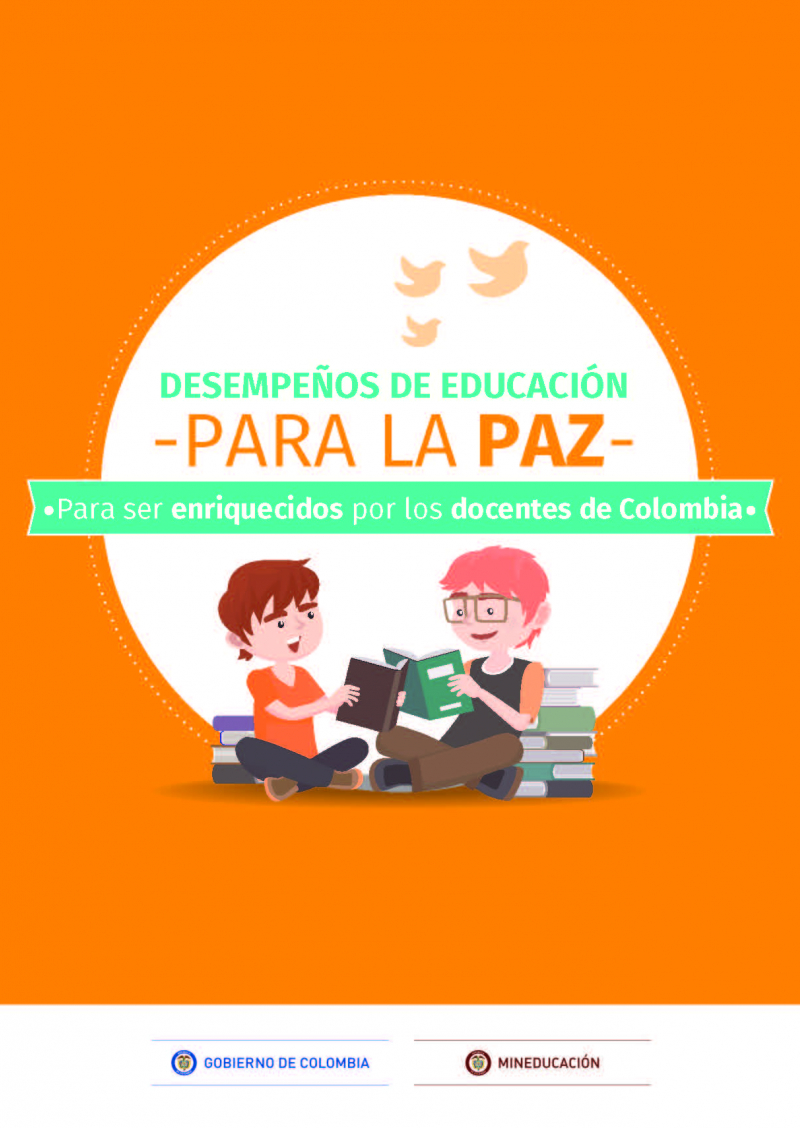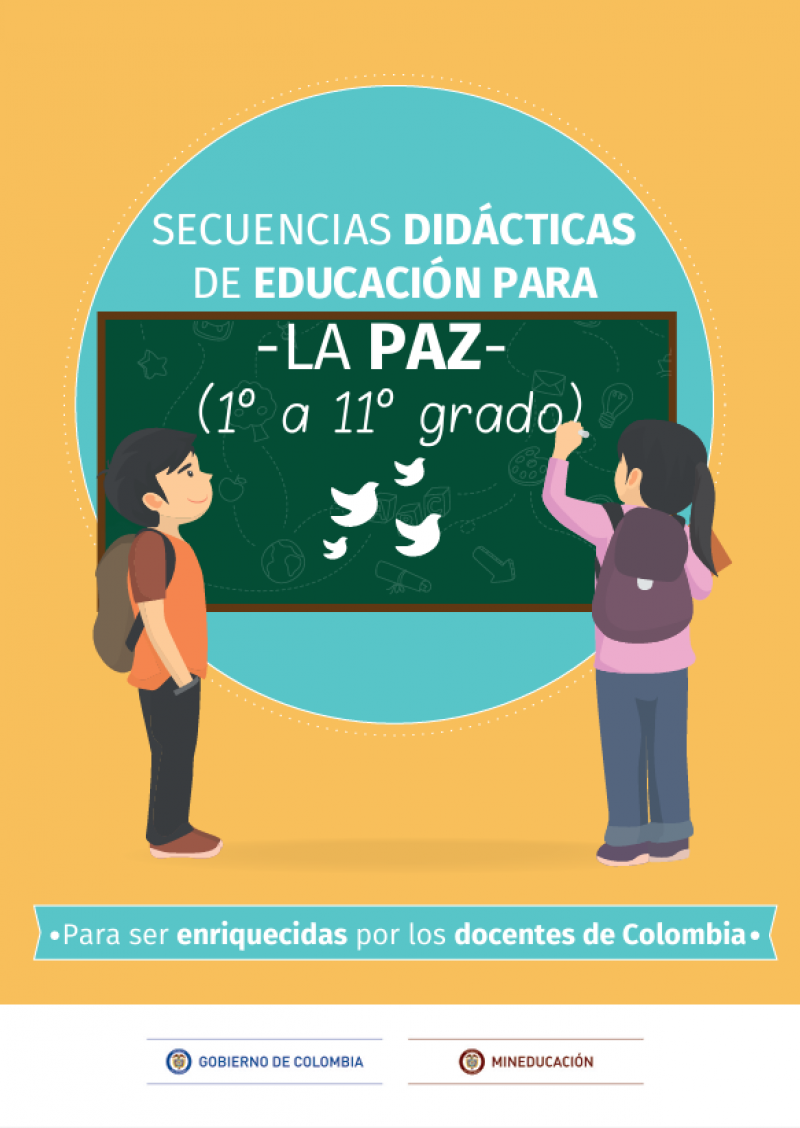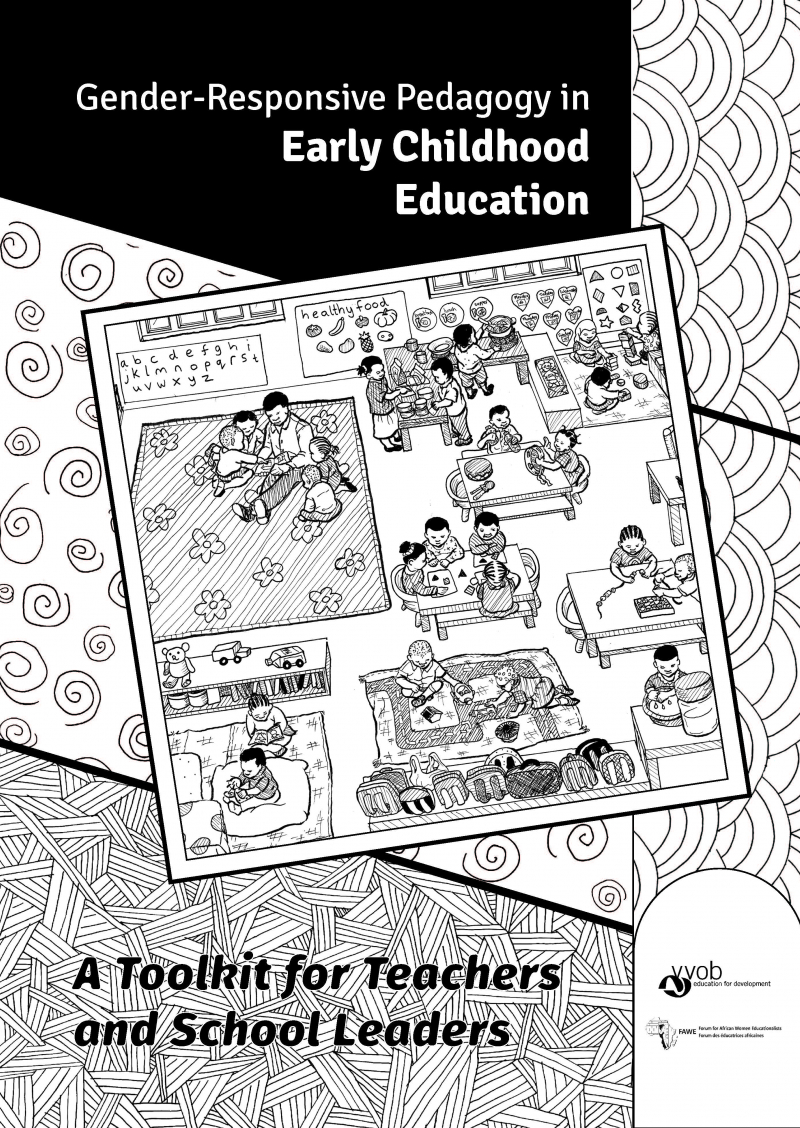مركز موارد المعلمين
عرض 21 - 40 من 41
Guía docente para el desarrollo de la lectoescritura emergente. Incluye orientaciones para su tratamiento en contextos bilingües
Guía de apoyo al trabajo docente, cuyo contenido fortalece las competencias metodológicas de los docentes para orientar el desarrollo de habilidades de la lectoescritura emergente, en el idioma materno, de las niñas y niños atendidos en el nivel de preprimaria. La guía está estructurada en dos partes:
I parte: fortalece los conocimientos acerca de la competencia de lectoescritura y de la etapa de lectoescritura emergente en particular, enfatiza el papel que juega la escuela y la importancia de aprender en el idioma materno.
II parte: describe las habilidades de la lectoescritura emergente y para cada una, sugerencias de actividades para realizar en el aula. Además, ofrece orientaciones específicas para desarrollar estas habilidades en contextos bilingües.
Guía de orientaciones metodológicas para docentes - Medio Social y Natural
El departamento de educación intercultural del Minsiterio de Educación de Guatemala publicó este paquete de recursos para que docentes trabajen con alumnos de primaria en contextos comunitarios indígenas (culturas xinka, maya, garífuna y ladino), abordando los ámbitos sociales y naturales. Proporciona herramientas didácticas e instrucciones para un desempeño efectivo en clase, con ejemplos de actividades. Estas herramientas buscan facilitar la enseñanza respetando la diversidad cultural del país.
Manual de Educación Intercultural para Docentes
Este Manual a destinación de los docentes propone actividades y talleres con enfoque en la interculturalidad para realizar en el aula. Se divide en cuatro apartados: identidad colectiva e individual; el conocimiento de la historia y de las distintas manifestaciones culturales para fomentar la paz en el país; estereotipos y prejuicios para combatir las discriminaciones y el racismo; e interculturalidad para valorizar la diversidad y la convivencia.
Enseigner et apprendre le français au primaire - Conception et fabrication de dix matériels didactiques pour le français au primaire
Les dix matériels présentés dans ce guide ont été conçus par des formateurs d’enseignants de la République de Guinée dans le cadre du programme Apprendre. On retrouve ici une description de la conception, la fabrication et l’utilisation de ces matériels en classe auprès des élèves. Ils permettent d’aborder l’apprentissage du français de manière ludique et adaptée au primaire.
Comment enseigner à des enfants handicapés dans les écoles ordinaires
Ce kit de ressource a été développé dans le cadre du programme Apprendre mis en œuvre par l’Agence française de développement et l’Agence Universitaire de la Francophonie. Ce document est conçu pour être utilisé dans des contextes éducatifs en Afrique de l’Ouest. Il fournit à l’enseignant des outils afin de comprendre les besoins des enfants en situation de handicap ainsi que des ressources pédagogiques sur lesquelles l’enseignant pourra s’appuyer pour répondre au mieux aux besoins de tous et toutes.
Estrategias de liderazgo docente para la mejora de aprendizaje y clima en el aula
Este seminario se centrará en identificar las características y desafíos de la gestión de aula. Abordaremos temas como el liderazgo docente y el uso de medios digitales en entornos virtuales de aprendizaje (EVA). También trata de la gestión de recursos en aulas virtuales, sus características y los retos para mejorar el aprendizaje de los estudiantes. La inscripción es necesaria, pero el seminario es completamente gratuito y accesible para todos.
Viajemos por América: oportunidades en el camino profesional de los equipos directivos en Chile
Una serie de webinars para descubrir los retos y oportunidades en las realidades de los equipos directivos en América. En este primer episodio, descubrimos la realidad de Chile con respecto a las oportunidades y necesidades de los equipos directivos en su trayectoria profesional.
Toolkit: Problem Solving Strategies
Welcome to the toolkit Strategies for Problem Solving of the Inter-American Teacher Education Network. This toolkit is aimed at professionals who work at different levels of teaching and want to learn about problem-solving strategies and their application in family, social and academic settings.
An important point to clarify is that the term “problem” does not refer exclusively to mathematics, but rather to the challenges that we face daily which are also problems to be solved through certain strategies.
The Toolkit can be downloaded at no cost and shared freely.
There are no pre-requisites.
Certificate: No certification is granted at this moment.
Modality: The Toolkit is self-guided and self-paced.
Welcome to the Problem Solving Strategies Toolkit, we hope these materials will meet the professional development needs of teachers in the Americas.
Toolkit: Effective Learning Objectives to Promote Critical Thinking
This free toolkit is aimed at all teachers interested in exploring in detail the characteristics of learning objectives and their importance in helping to effectively communicate what the student is expected to achieve; This is the basis of any instruction and is vital for the planning of all kind of teaching strategies especially the development of critical thinking. Participants who complete this toolkit will be able to identify the elements that affect the effectiveness of learning objectives by answering a series of reflection questions and will also be able to generate effective learning objectives for critical thinking development. There are no pre-requisites, all teachers from all academic areas and levels can participate. The Toolkit is self-guided, presents exercises of self-reflection and guided discovery and examples of application in the classroom.
Desempeños de educación para la paz
Este documento es una propuesta de diseños curriculares y desempeños de actividades a destinación de los docentes en el marco de la Cátedra de la Paz en Colombia. Propone actividades para alumnos desde el principio de la educación primaria, que se enfocan en el manejo de emociones y las interacciones con los demás, hasta el principio de la educación secundaria, con actividades enfocadas en competencias ciudadanas, y análisis sociohistórico. Está diseñado para ser apropiado y adaptado por los docentes.
Secuencias didácticas de educación para la paz
Este documento comisionado por el Ministerio de Educación y elaborado por universitarios propone secuencias pedagógicas en el marco de la Cátedra de La Paz en los establecimientos educativos preescolar, básica y media. Tiene como fin garantizar el fortalecimiento de una cultura de paz a través de los espacios de aprendizaje desarrollando competencias emocionales y cognitivas. Se proponen aquí algunas secuencias didácticas a disposición de los docentes para reproducir o adaptar en sus aulas.
Active Teaching and Learning Manual
The Active Teaching and Learning booklet presents the principles and practices of learner centered pedagogy as a teaching approach to achieve quality education. It is accompanied by cards on methods, techniques and tools, which provide teachers with examples and tips for classroom implementation. The booklet was developed by the Teacher Instructor Education Training department of the Ministry of Education, Science Technology and Sports of Uganda, with support from the Belgian Development Agency, in the framework of the Teacher Training and Education project.
How to use ICT tools in teaching and learning
This booklet presents a selection of ICT tools to integrate into teacher training in Uganda. Every tool is accompanied with creative ideas and suggestions on how to engage learners and enrich lessons.
Technology enhanced learning
This course is an introduction to technology enhanced teaching and learning.
General teaching methods
This course aims to get the best out of the teaching practices from pre-service teachers, in-service teachers and anyone who is eager to contribute to quality education. It has been written by the Teacher Training Education Project, implemented by Enabel and the Ministry of Education and Sports in Uganda.
Teaching to prevent atrocity crimes: a guide for teachers in Africa
This is UNESCO's first resource with a regional focus on teaching to prevent atrocity crimes. It was developed with the United Nations and in partnership with the UNESCO International Institute for Capacity Building in Africa (IICBA). The guide was informed by exchanges with African stakeholders and advisors and tested through a piloting exercise with African teachers and students. It provides principles for teachers to consider in facilitating learning and constructive discussions with their students.
Gender-responsive pedagogy in early childhood education. A toolkit for teachers and school leaders
The toolkit offers an introduction to gender-responsive pedagogy in early childhood education and serves as a practical guide that can be adapted to any context and the related needs. It provides teachers at early education practical tips to ensure they are able to offer children a learning environment that is free of prejudice and stereotypes. It is a source of ideas that individual teachers and school leaders can put to immediate use in their classrooms and schools. The toolkit was pre-trialled in three countries: Rwanda, South Africa and Zambia, and it can be contextualised for implementation in different African countries.
Transformative pedagogy: a teachers’ guide for peace and resilience building in North Africa
This guide is designed to build the capacity of teachers so that they are informed and empowered in why and how to educate for peace-building. It offers an analysis of conflict, examines the role of ethics, expands on the elements of transformative pedagogy. It also provides practical tools to support learners’ active participation in shaping the world around them and assess learners’ understanding of peacebuilding concepts and skills, all while engaging the community.
Youth empowerment for peace and resilience building and prevention of violent extremism in Sahel and surrounding countries: a guide for teachers
This guide is designed to build the capacity of secondary school teachers and teacher educators to integrate a peace and resilience building approach in education for the prevention of violent extremism. It builds on the Transformative Pedagogy for Peace-building guide and it was contextualized to the context the Sahel and surrounding countries.
The guide redefines the role of teachers, inviting them to make a paradigm shift in adopting a transformative pedagogy that allows learners to actively participate in their own learning. Transformative pedagogy builds on active pedagogy and the competencies-based approach. The guide concludes with engaging learning activities to support experiential learning.
Transformative pedagogy for peace-building
This guide is designed to build the capacity of teachers so that they are informed and empowered in why and how to educate for peace-building. It offers an analysis of conflict, examines the role of ethics, expands on the elements of transformative pedagogy and provides practical tools to assess learners’ understanding of peacebuilding concepts and skills. It concludes with 20 engaging activities to support experiential learning.
The guide was developed as part of the "Teacher Training and Development for Peace-building in the Horn of Africa and Surrounding Countries project", which has as a long-term goal to develop a critical mass of teachers able to implement effective teaching and learning essential for preparing peace-loving and productive youth in Eritrea, Ethiopia, Kenya, Somalia, South Sudan and Uganda.

